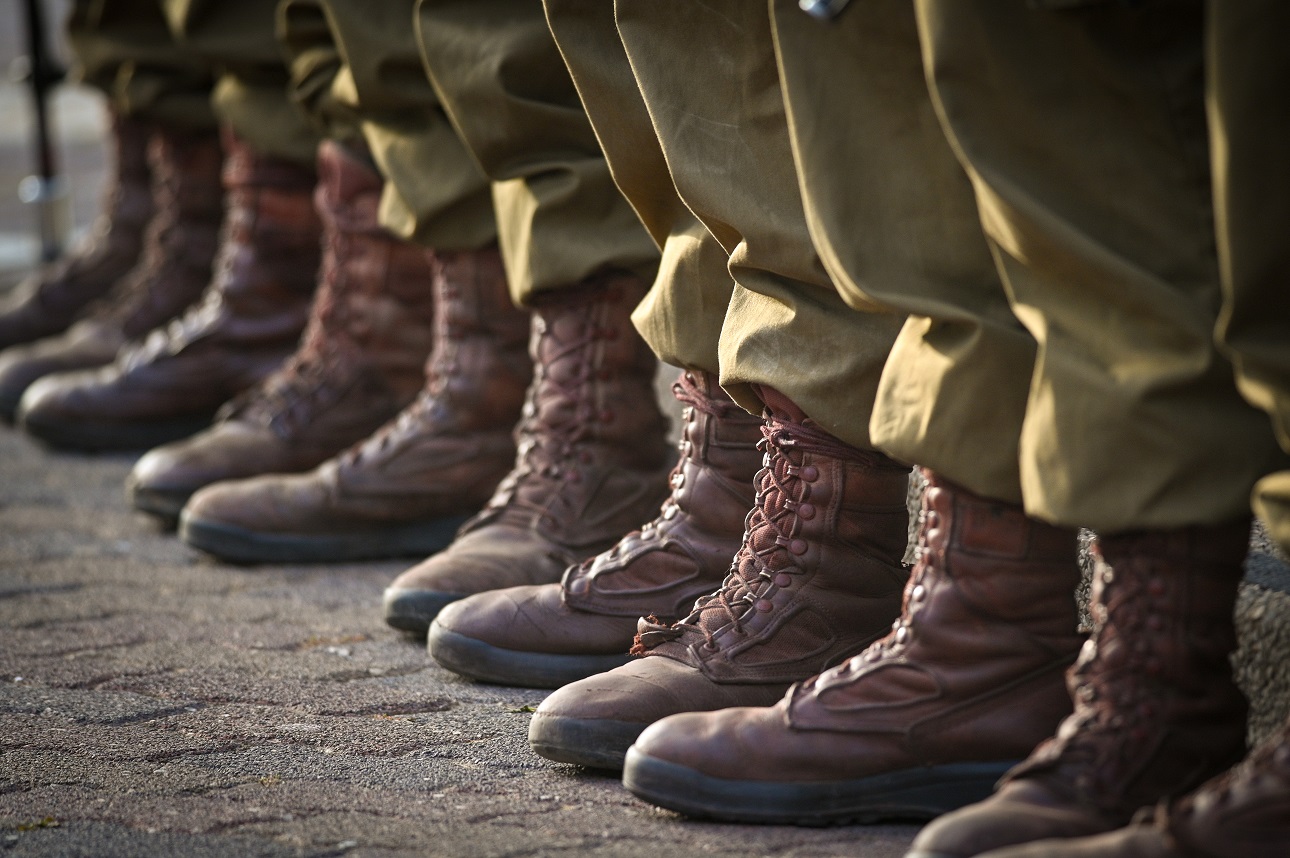Back to the People’s Army
The model that has supported the IDF and Israeli society since the state's founding and has been eroded over the years received renewed reinforcement in the current war. The avoidance of participation by Haredim places it at renewed risk.

Photo by Michael Giladi/ Flash90
Since the days of Ben-Gurion, the "people's army" model has been the cornerstone of Israel's security policy. The model included compulsory service applicable to the entire population for a significant period; annual reserve service for a considerable percentage of those who served in compulsory service; and a relatively small number of soldiers serving in the army for the long term as a profession.
This model has many advantages: it allowed maintaining a high readiness level of a relatively large number of soldiers necessary for the IDF to face the country's enemies and maintain a skilled military force at a reasonable economic cost. Additionally, the IDF served as a melting pot for the heterogeneous society of a country based on immigration from the four corners of the earth.
The foundation of the people's army model was the general national mobilization to it. This mobilization gave legitimacy to the demand for universal service and was the basis for the ongoing demand for long reserve service.
Before the current war, it seemed that the people's army model was at risk. Over the years, there was a significant decline in the percentage of those serving. In 2022, only 68% of men called to the security service (excluding the Arab sector) served in the IDF, and less than 60% of women. 17% of Jewish men (more than half of the Jewish men who did not serve) were Haredim who received service deferrals or exemptions due to Torato Umanuto (“Torah is their occupation” arrangement). In fact, less than 10% of graduates from the Haredi education system serve in the IDF, while more than 85% of national-religious and state education graduates serve. Given the demographic trends of growth in the Haredi population, the number of Jewish men seeking deferral or exemption from military service due to yeshiva study will rise in 25 years to a third of all service candidates.
Indeed, the decline in the serving rate also led to erosion in public support for the people's army model. Surveys conducted before the war indicated that only 42% of the Jewish public supported maintaining the existing service model, while 47% supported changing the service model to a "professional army" – paid service for those who choose it. The demand for change was more common among the young: more than 55% of Israelis aged 18-44 supported the transition to a professional army model. In other words, before the war we faced a situation where the Jewish public no longer supported the service model that formed the basis of Israel's national security arrangement since its establishment. This reflected the lack of legitimacy of a conscription model that significant parts of the public could simply choose not to be part of.
This war can be a turning point in support of the people's army model. It is clear to everyone that Israel needs a large army and that the necessary number of soldiers can only come from universal compulsory service and extensive reserve service. The need for public solidarity and general contribution to the defense of Israel is also clear.
But the people's army model cannot bear the existing large scope of service exemptions for many years. If a third of Jewish men study in yeshiva and do not serve in the army, the burden on the others – in compulsory and reserve service – will increase. The central problem is not the service burden but the glaring inequality: the Haredim are a growing group at the center of Israeli society enjoying all the benefits of a modern welfare society but choosing not to shoulder the service duty with the rest of the public.
Under these conditions, maintaining the readiness of the other parts of the population to enlist in compulsory service and serve long reserve service will be in doubt in the near future. Without public support, the people's army model cannot continue to exist, and the entire Israeli security model will be undermined. Only extensive conscription of the Haredi population can maintain the people's army model that ensures Israel's security.
Amichai Cohen is a Senior Fellow at the Israel Democracy Institute and a faculty member at the Ono Academic College Law School.
